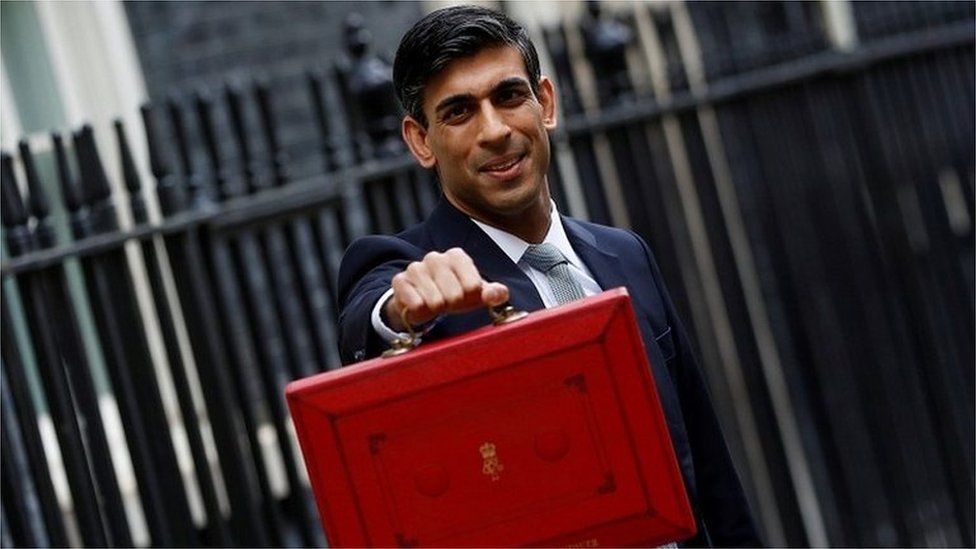Want to find out about impact investing? Here’s part one of a three-part series by sector expert Scott Greenhalgh.
Budget 2021: Social Investment Tax Relief extended
This Wednesday saw the publication of the Chancellor’s Budget for Covid recovery. Overall, the Budget announcements have set the scene for a good year in philanthropy and social investment. With personal taxes frozen and measures to boost economic recovery, the Budget should support investment growth, creating gains that philanthropists can reinvest in social causes.
Further, the Chancellor’s announcement that Social Investment Tax Relief will be extended for an additional two-years is a huge boon for the philanthropy and social investment sectors. Prior to the Budget, there was a sector-wide call for this extension in order to allow time for thorough consultation on reforms.
In this article, we look at what social investment tax relief is, and why this decision is critical for the sector.

Image: Rishi Sunak, Chancellor of the Exchecquer. Image rights: REUTERS, via the BBC.
What is Social Investment Tax Relief?
Social Investment Tax Relief – or SITR, as it is commonly known – is a scheme through which philanthropists who support social enterprises with loans can claim up to 30% income tax relief on their investments. Launched in 2014 – with a sunset clause expiring this year – the programme was designed to make it easier for social enterprises to access new streams of funding.
Why was the abolition of SITR being considered?
SITR was meant to unlock more working capital for charities and social enterprises, but there have been some problematic restrictions in the scheme. These included a balance sheet asset cap, which effectively excluded many arts and culture organisations from the scheme by taking into account their significant – though inalienable – collections and buildings. Organisations with community-owned assets suffered the same fate.
The scheme was also not positioned in a way that enabled wealth advisers to recommend it to their clients. Even the sunset clause itself has been a challenge, limiting the lifetime of the relief at the same time as interest in impact investing has been growing.
As a result of these problems, SITR has not been used as widely as hoped. Many thought this may serve as a justification for the government to allow the relief to expire in this week’s budget. The concern was that, at a time when government finances have been pushed beyond limits, the prolonging of tax relief schemes would not be looked at kindly. It was also thought that abolishing SITR could be seen as a partial trade-off to allow the government not to raise income tax.
What was the argument against this?
At Beacon, we have been monitoring the response by philanthropists to the Covid crisis. We see many who are interested in investing in the recovery and resilience of charities through a combination of grants and loans.
Those in the philanthropy and social investment sectors were concerned that abolishing SITR – without putting something more useful in its place – could send a message to social investors that their contributions to the recovery effort are not valued. SITR is currently one of the few tax reliefs that helps community businesses to raise investment, and many charities believed that to scrap it – rather than use its flaws as grounds for improvement or redesign – would leave many social enterprises without access to this line of funding at a period when mass market fundraising is yielding less.
Big Society Capital – one of the organisations leading the ‘Save Social Investment Tax Relief’ campaign – highlighted that, at a time when the pandemic has caused households to save over £120 billion, schemes like SITR are imperative to encourage private money to flow into the sector. It has also been estimated by Social Enterprise UK that saving and expanding SITR will create 13,500 jobs and help 4,000 social enterprises, over the next five years.
Beyond this, SITR ties into No10’s own Levelling-Up agenda, a flagship government plan to address inequality in historically underfunded areas of the UK. Speaking to this, Melanie Mills, Senior Director of Social Sector Engagement at Big Society Capital, says:
“SITR has huge benefits for social enterprises and charities in regions outside of London. […] It is often in remote and rural areas where SITR investment flows, channelling capital into vital community anchors, such as pubs, sports clubs and shops.”
What now?
Since Rishi Sunak made the announcement on Wednesday, there has been a collective sigh of relief from the philanthropy and social investment sectors. But with this in mind, Social Enterprise UK aptly comments that the extension “must not be the end to helping social enterprises grow and flourish, but the beginning.”
Indeed, there is much work to be done over the next two years to develop targeted and costed proposals to improve SITR. This review is essential to design a new relief that encourages greater use of private assets for public good.
